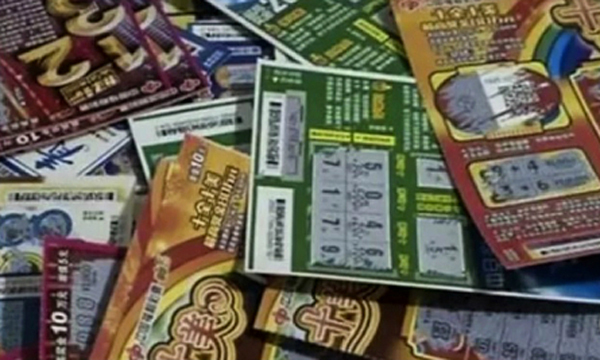Lottery sales rise 53% year-on-year in January-October
Youth unemployment rate ‘21.3%’ highest ever due to economic recession
Lottery sales and online fraud are surging in China this year.
Citing data released by the Chinese Ministry of Finance on the 30th, local media, including the Chinese Newspaper Network, reported that cumulative lottery sales between January and October this year were 475.876 billion yuan, an increase of 53% year-on-year. During this period, the average lottery purchase per Chinese person was about 340 yuan.

Sales of lottery tickets in China are on the rise toward the second half of the year. Monthly sales, which were 33.2 billion yuan in January this year, exceeded 40 billion yuan (approximately 7.2 trillion won) and 50 billion yuan in February and April, respectively, and increased to 52.9 billion yuan (approximately 9.6 trillion won) in August. September and October were on a somewhat decreasing trend, but compared to the same period last year, they increased significantly.
As lottery sales increased, the number of sellers also increased, and the number of companies newly registered until October this year increased by 38% from last year. Lottery vendors as well as lottery vending machines are building one after another in downtown and tourist attractions, and taxis equipped with mini lottery machines have also appeared.
Analysts say that the increase in lottery sales is related to the Chinese economic recession. This is because speculative psychology is spreading among ordinary people who cannot find a way out of life, which has become tight due to the economic downturn. In particular, the number of lottery purchases aimed at fluke among young people has reportedly surged amid serious job search difficulties, with the youth unemployment rate hitting an all-time high of 21.3% in June.
A lottery store owner said, “Many lottery buyers are young people these days,” adding, “Although they buy it for fun, many young people buy it regularly because they think they can become rich if they are lucky by investing between several yuan and tens of yuan.”
“The remarkable increase in lottery sales shows that China’s economic recovery remains far and tough,” Chinese private think tank Anbang pointed out in a report in June.
The number of online scammers indicted in China this year jumped 52% from last year.
According to the Chinese newspaper network, the Supreme People’s Prosecutor’s Office said on the same day that the number of online fraudsters indicted by the People’s Prosecutor’s Office nationwide between January and October this year was 34,000, a 52% increase from the same period last year. In the past, most online scammers were young, low-income, and low-educated, but the number of highly educated people is gradually increasing, the Supreme People’s Prosecutor’s Office explained.
In the first three quarters of this year, more than 18,000 people were more educated than vocational colleges, who were indicted by the People’s Prosecutors’ Office across the country on charges related to online fraud, including fraud perpetrators, fraud assistance, and fraud concealment. This amounts to 53% of online fraudsters indicted between January and October this year.
The Supreme People’s Prosecutor’s Office said that online fraud crimes are rampant in countries near the border, and ordered scammers to track down fraudsters arrested from abroad, actively prosecute them, and seek a heavy sentence, while making all-out efforts to confiscate funds illegally acquired.
Chinese prosecutors and public security have launched a massive sweep this year as online fraud against their own people has been rampant based in China’s border areas, including Myanmar. In April, 430 people who committed online fraud in connection with Myanmar organizations were arrested and all prosecuted in Nanchung, Sichuan Province. Since September, 31,000 Chinese participating in online fraud have been arrested and repatriated, including the people behind the fund and 63 heads and key executives of criminal organizations in northern Myanmar, in cooperation with local authorities in Myanmar. China’s Ministry of Public Security said on the 21st of last month that “a local fraudulent criminal organization has virtually collapsed during the civil war in Myanmar’s northern Kokang Autonomous Region.”
It has also strengthened punishment for online fraud crimes. He participated in an online scam in Zhejiang Province last December Of the 11 arrested, one of the four people already sentenced was sentenced to life imprisonment, deprivation of political rights for life, and confiscation of all property, while the other three were also sentenced to more than 10 years in heavy prison.
SOPHIA KIM
US ASIA JOURNAL



